News

Ex-MP Johnston Fernando Arrested
Ex-MP Johnston Fernando was arrested by the Criminal Investigation Department (CID) on Wednesday (23) afternoon.
This arrest is in connection with an investigation into the discovery of an assembled luxury vehicle.
Fernando was taken into custody when he arrived at the CID to provide a statement regarding the incident.
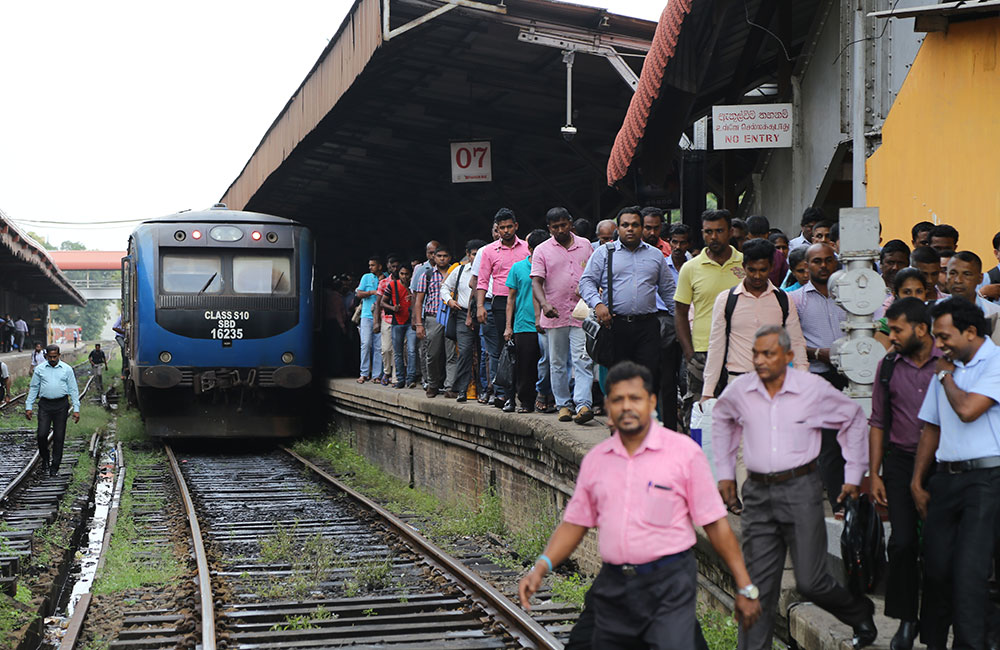
Trains between Fort and Maradana delayed
Trains between Colombo – Fort and Maradana have been delayed, Sri Lanka Railways announced today.
According to the department, the delay is caused due to a technical issue on the railroad switch at the Fort Railway Station.
The department further said that as a result, all trains travelling towards Maradana have been halted, causing delays.
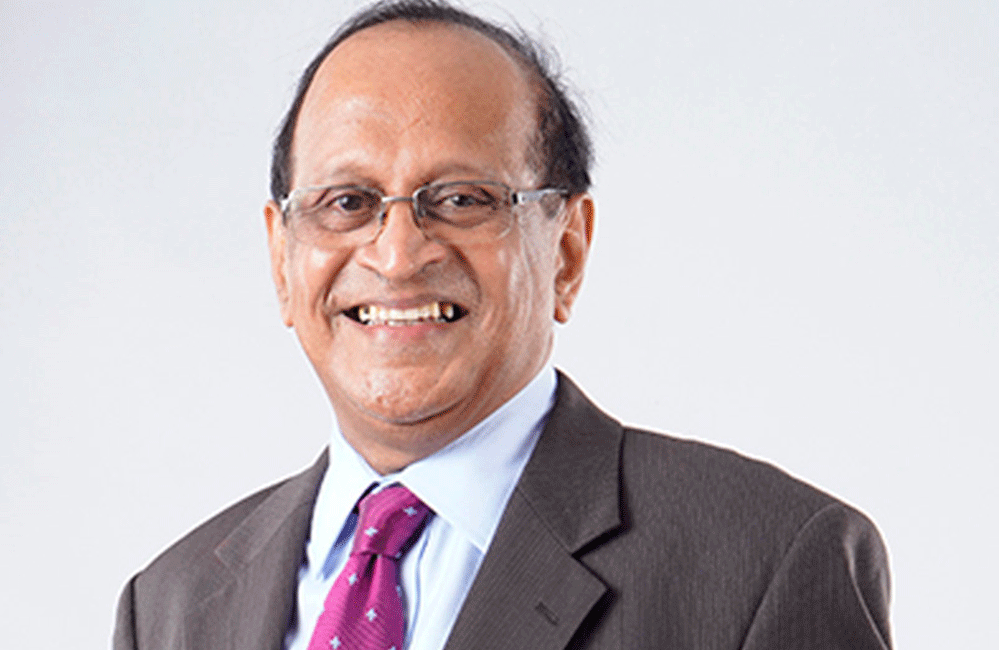
Prasantha Lal de Alwis new Principal of Sri Lanka Law College
President’s Counsel Prasantha Lal de Alwis has been appointed as the new Principal of Sri Lanka Law College, effective October 22.
His appointment was made by ex-Chief Justice Jayantha Jayasuriya, following the retirement of the college’s former principal, Dr Atula Pathinayake.
PC de Alwis holds both his LLB and LLM from the University of Colombo.
He began his legal career in 1983 as a State Counsel at the Attorney General’s Department, where he served until 1990.
In addition to his legal practice, he has contributed significantly to legal education as a lecturer at the Faculty of Law of the Open University of Sri Lanka, the University of Colombo, and Sri Lanka Law College.
Currently, he serves as a Director at Assetline Finance.
(sundaytimes.lk)

Commissioner General announces special decision on LG Elections
The Commissioner General of Elections, Saman Sri Ratnayake, has announced that no new nominations will be called for the upcoming local government elections.
He clarified that the election will proceed based on the nominations that were previously submitted.
Speaking at a news conference held in Kandy, Ratnayake further noted that any party who feels this decision has caused them injustice has the option of seeking legal recourse through the courts.
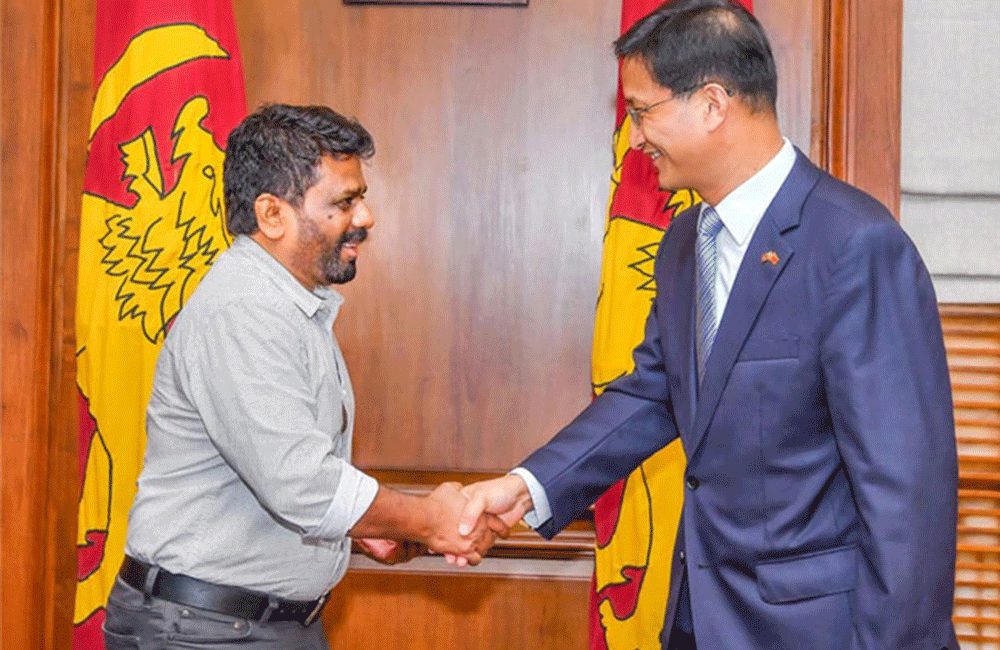
China donates Rs. 30 million to Sri Lanka as emergency flood relief
The Chinese Ambassador to Sri Lanka, Qi Zhenhong, met with President Anura Kumara Dissanayake this afternoon (22) at the Presidential Secretariat. During their meeting, Ambassador Qi made a donation of LKR 30 million (USD 100,000) as emergency flood relief to assist those affected by the recent flooding in the country.
In addition to immediate relief measures, the discussion also extended to a dialogue about long-term flood prevention and management strategies. They discussed sustainable approaches to enhance the resilience of communities against future flooding.
Recent reports indicate that heavy rains have led to significant flooding in several provinces, displacing thousands of families and causing extensive damage to infrastructure and agriculture.

EU Ambassador and ADB Director call on Prime Minister Harini
The Ambassador of the European Union (EU) to Sri Lanka, Carmen Moreno, has paid a courtesy call on the Prime Minister of Sri Lanka, Dr. Harini Amarasuriya, at the Prime Minister’s Office in Colombo.
The meeting was an opportunity to reaffirm the strong and enduring relationship between the European Union and Sri Lanka, which is built on mutual respect and cooperation, the Prime Minister’s Office said.
Prime Minister Dr. Amarasuriya highlighted the importance of the EU’s continued support for the GSP+ trade scheme, which has been instrumental in boosting Sri Lankan exports and also outlined her government’s vision to attract more foreign investment by eliminating corruption and strengthening institutions such as the Board of Investment (BoI).
Meanwhile, the Sri Lanka Director of the Asian Development Bank (ADB), Takafumi Kadono, has also met with Prime Minister Dr. Harini Amarasuriya at the Prime Minister’s Office yesterday (18) for a discussion.
The Prime Minister expressed her gratitude for the support provided by the Asian Development Bank for various development projects in Sri Lanka.
She conveyed her hopes for continued support from the Bank to help achieve Sri Lanka’s future development goals, according to the Prime Minister’s Office.
The meeting was attended by Cholpon Mambetova, Head of Sri Lanka Operations for the Asian Development Bank; Herathbanda Jayasundara, Senior Social Development Officer; Udeni Udugahapattua, Director of the Asian Development Bank Division; and Pradeep Saputantri, Prime Minister’s Secretary.

Inflation Set to Fall, but Global Risks Mount, IMF Warns
The International Monetary Fund says that the global battle against inflation has largely been won, even if price pressures persist in some countries.
Pierre-Olivier Gourinchas, Economic Counselor and Director of the Research Department of the IMF presenting the World Economic Outlook on Tuesday (22) said the prediction is that headline inflation will fall to 3.5 percent by the end of next year, slightly below the average during the two decades before the pandemic.
This project comes after headline inflation peaked at 9.4 percent year-on-year in the third quarter of 2022.
Pierre-Olivier Gourinchas says that global economy remained unusually resilient throughout the disinflationary process.
Growth is projected to hold steady at 3.2 percent in 2024 and 2025, but some low-income and developing economies have seen sizable downside growth revisions, often tied to intensifying conflicts.
In advanced economies, growth in the United States is strong, at 2.8 percent this year, but will revert toward its potential in 2025.
For advanced European economies, a modest growth rebound is expected next year, with output approaching potential.
The growth outlook is very stable in emerging markets and developing economies, around 4.2 percent this year and next, with continued robust performance from emerging Asia.
"The decline in inflation without a global recession is a major achievement,"said Pierre-Olivier Gourinchas, Economic Counselor and Director of the Research Department of the IMF.
Despite the good news on inflation, downside risks are increasing and now dominate the outlook, he warned noting that an escalation in regional conflicts, especially in the Middle East, could pose serious risks for commodity markets. He noted that shifts toward undesirable trade and industrial policies can significantly lower output relative to the baseline forecast. Monetary policy could remain to tight for too long, and global financial conditions could tighten abruptly.

8 vehicles for Mahinda, 11 for Ranil : Govt issues clarification
The Government Information Department clarified that none of the official privileges provided to former Presidents have been withdrawn.
In a statement, the department confirmed that perks and vehicles have been provided to former Presidents in accordance with the provisions of the Presidents’ Entitlements Act No. 4 of 1986.
It further clarified that a request had been made to both Mahinda Rajapaksa and Ranil Wickremesinghe to return additional vehicles. As a result, former President Rajapaksa has returned 8 out of 16 vehicles, while Wickremesinghe currently has 11 vehicles for his use.
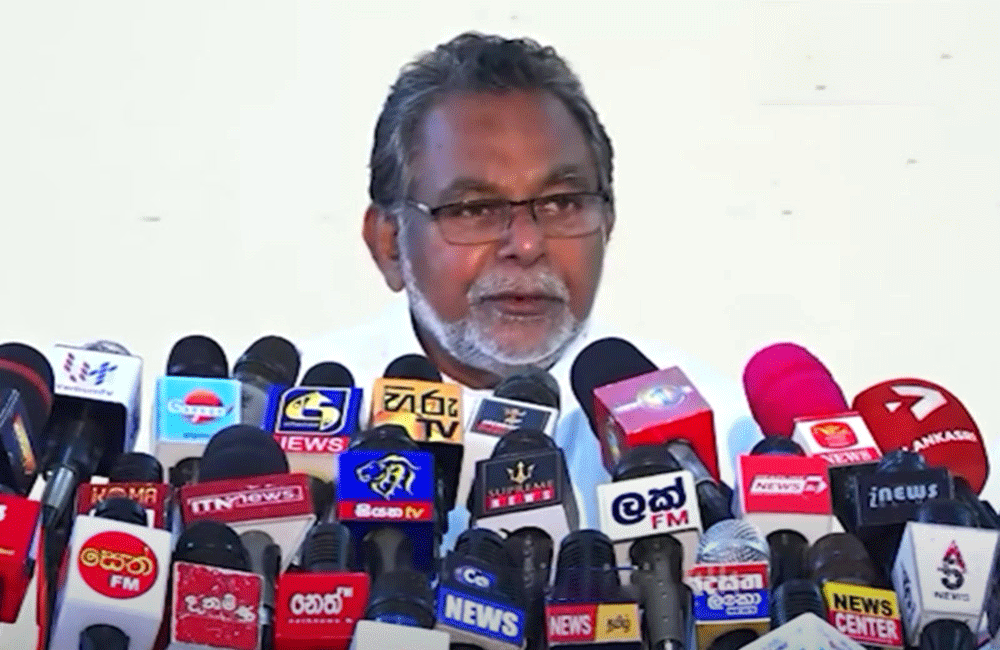
Sri Lanka’s Catholic Church also rejects Gammanpila’s Easter attacks report
Rev. Fr. Cyril Gamini Fernando, Director of Communications for the Archdiocese of Colombo, says that they reject the report of the Committee of Inquiry, chaired by retired High Court Judge A.N.J. De Alwis.
He made this statement in response to comments made by Pivithuru Hela Urumaya (PHU) leader and former MP Udaya Gammanpila during a press conference held in Colombo yesterday (21) where he disclosed the contents of a previously unreleased report regarding the Easter Sunday terror attacks.
Speaking at a press conference held today at the Archbishop’s House in Borella, Rev. Fr. Gamini stated: “It is clear that a conflict of interest will immediately arise by appointing A.N.J. De Alwis, the sister of Prasanna De Alwis, who is accused of concealing and destroying evidence in a murder investigation, as the head of this committee.”
He further stated that a report produced under these circumstances cannot be regarded as impartial or independent.
“Therefore, we completely reject this report,” Rev. Fr. Gamini said.

Import tax on several food items : Finance Ministry issues clarification
The Ministry of Finance has issued a clarification stating that reports of increased taxes on several imported goods, are inaccurate.
The clarification comes after it was reported that taxes on certain imported goods were increased effective from October 14 to December 31, 2024.
The Finance Ministry said that the previous gazette on the special commodity levy expired on October 13, prompting a renewal of the gazette on October 14, 2024.
Accordingly, The Ministry reaffirmed that the concessionary tax on imported lentils, set at 25 cents, remains unchanged, along with the rates for the other four products.
This extension is designed to support local industries, such as fishing and fruit cultivation, while also considering foreign exchange concerns.

Ravi Seneviratne should be removed, says Gammanpila
Pivithuru Hela Urumaya (PHU) leader, former MP Udaya Gammanpila has called for the immediate removal of Ravi Seneviratne from the post as the Public Security Ministry Secretary, as he has been named as a main accused in the Easter Sunday bomb attacks investigations by a Presidential Commission of Inquiry (PCoI) report.
Convening a special media conference today (21), Gammanpila said, “A PCoI report which probed the 2019 Easter Sunday bomb attacks has revealed that the State Intelligence Service (SIS) had informed former senior DIG of the Criminal Investigation Department (CID) about the imminent attacks on Easter Sunday in 2019.”
“According to page 43 of the report, the SIS Director had informed the CID Senior Deputy Inspector General of Police on April 9, 2019, that the National Thowheed Jamaath terrorists, including Mohammad Saharan, were planning to carry out suicide attacks on several locations, including prominent Catholic churches. Who is this Senior Inspector General of Police? It is the current Secretary to the Ministry of Public Security, Ravi Senaviratne,” he stated.
“I had given the President until 10 a.m. today to release the PCoI report. Since the deadline has passed, I am disclosing one of the reports today and the second one next Monday,” he added.
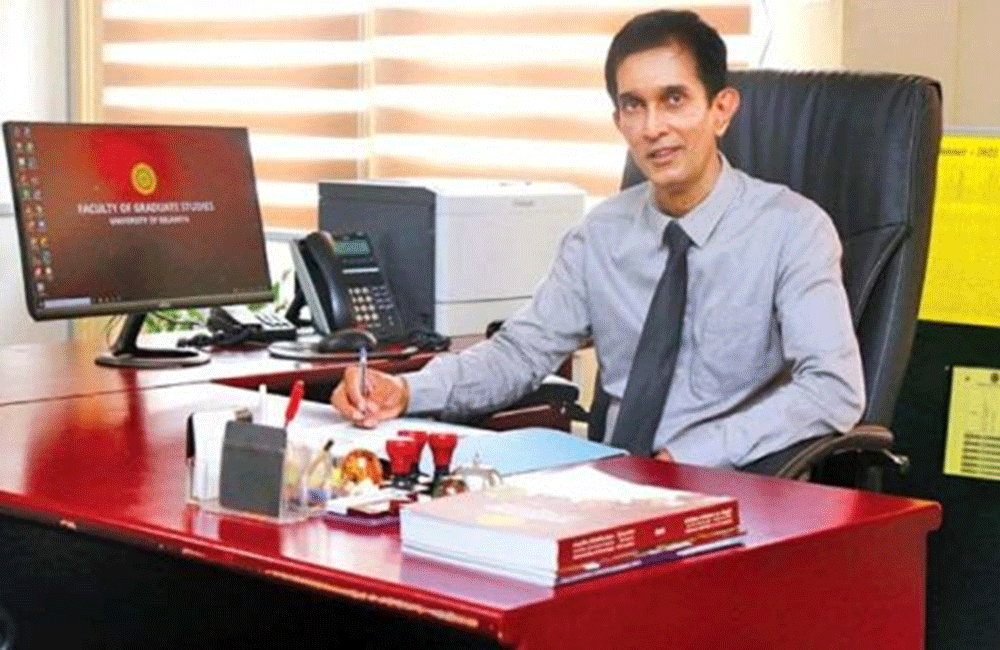
New Chairman For University Grants Commission
Senior Professor Kapila Seneviratne has been appointed as the new Chairman of the University Grants Commission (UGC) by President Anura Kumara Dissanayake.
Professor Seneviratne, a distinguished scholar in the field of chemistry, is an alumnus of the University of Kelaniya.
He earned his Ph.D. from Wayne State University in the United States in 1997.
Throughout his career, he has led numerous research projects focusing on the chemical and nutritional properties of edible oils, establishing himself as a leading academic in this area.
Prior to his new appointment, Senior Professor Seneviratne served as the Dean of the Postgraduate Institute at the University of Kelaniya.
Page 157 of 663